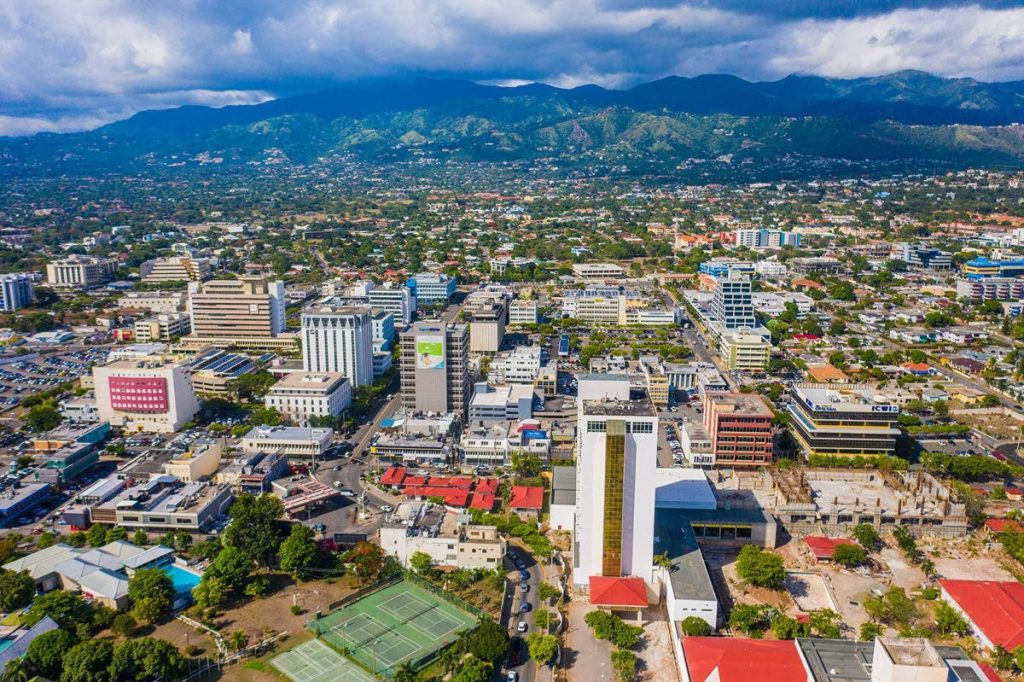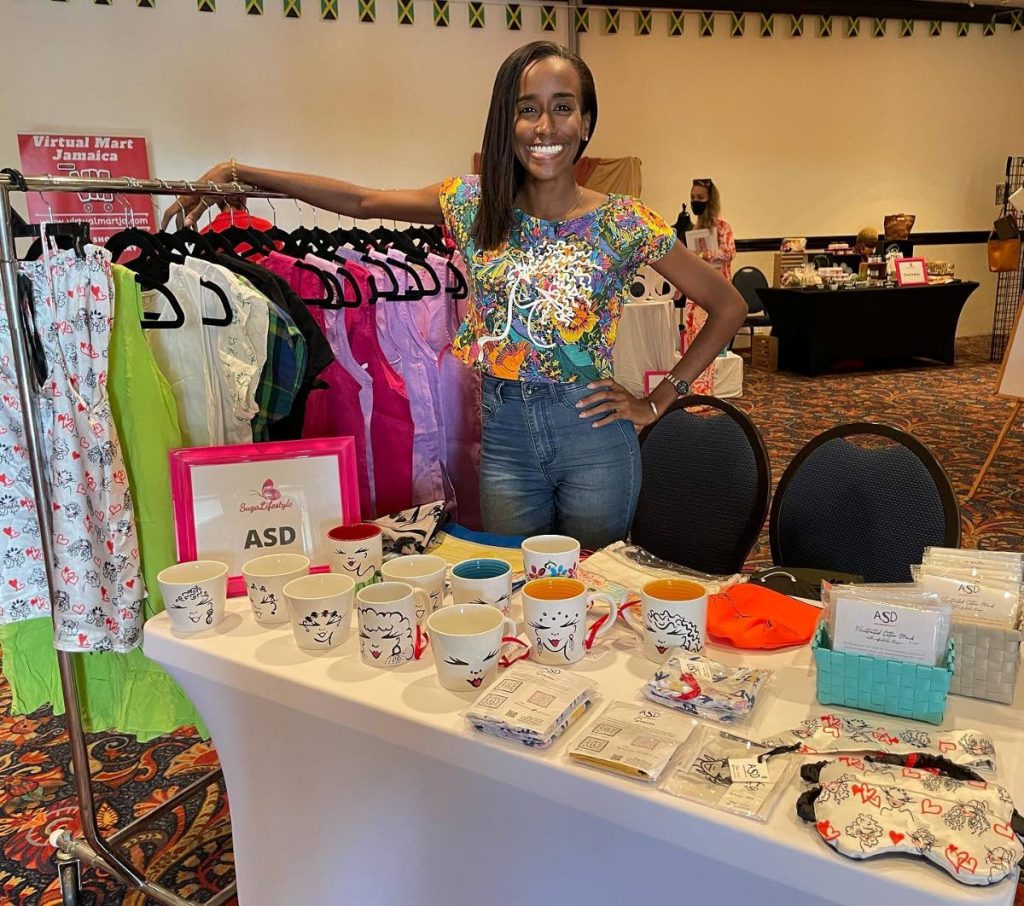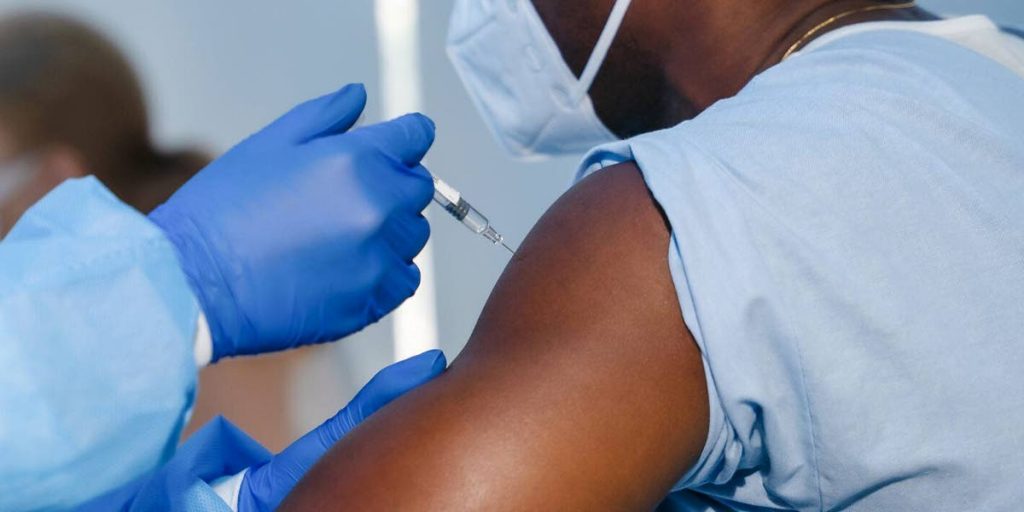Covid19 in Jamaica: Holness government spends billions amid public distrust

Wearing masks, getting covid19 tests, breaking up limes to get home before curfews and in some Caribbean territories, finding everything to do at home on no-movement days have become the order of the day.
Added to the list are increasing challenges in finding employment and business owners closing their doors because of low domestic economic activity.
The Caribbean has been no safe haven from the changes necessary for managing the spread of the most pervasive virus of this generation.
But, travelling to Jamaica from TT in early October, via Barbados, it was clear the region has been working tirelessly to combat the spread and negative effects of covid19 on our collective quality of life and our economies. At all points a negative covid test result had to be presented along with printed travel authorisation documents with QR codes which could be scanned by airport personnel – all while social distancing was being reinforced.
It was evident in moving through three territories in the region, however, that each island had different approaches. The approaches were seemingly formed on the basis of the extent to which the islands grapple with the pandemic, the industries on which they most rely and how culture affects people’s willingness to adhere to measures put in place to limit the virus.
The extent of the pandemic’s impact on the regional economy was reflected in a report by the Statistical Institute of Jamaica (Statin). The report indicated a 10.8 per cent increase in unemployment in the last quarter of 2020 from 7.0 per cent in January.
The World Bank said in 2020 the poverty rate increased to about 23 per cent in 2020, with a 9.67 per cent decrease in GDP. Later reports by Statin, however, indicated a decrease to 8.9 per cent in the first quarter of 2021.
A media release from Jamaica’s finance ministry on October 28 said the government will provide a Ja$25 billion stimulus, the largest in the nation’s history, to support economic activity.
There was also a reduction in general consumption tax (GCT) from 16.5 per cent to 15 per cent, which the government said puts Ja$14 billion back into the hands of consumers to support consumption.

Additionally, the banking sector volunteered to reduce asset tax for a year, which the government said adds Ja$3 billion to the Ja$7 billion covid contingency.
Jamaica also implemented its CARE Programme, which was set up to assist Jamaicans most in need. An October 13 article published by the Jamaica Information Service said approximately 350,000 Jamaicans benefited from the programme, in which one-off grants ranged from Ja$10,000-$18,000. One-off payments of Ja$10,000 were also granted to self-employed people whose statutory income is Ja$60,000 or less, while unemployed people who remained out of work benefited from a one-off payment of Ja$18,000.
The government continued by seeking to encourage Jamaicans to support the local economy by buying from local businesses despite widespread unemployment and increased cost of living, including high electricity bills.
The numbers of covid19 cases continue to climb, while schools at every level of education remain closed. But unlike some other countries like TT, bars, malls and beaches have generally remained open, presumably because the island’s economy depends on tourism. In 2019, the destination attracted 4.2 million visitors, its highest number yet.
But how do Jamaicans experience what has been happening since covid19 started spreading on the island in 2020?
Business Day spoke with three professionals from the corporate sector on the impact of the pandemic on Jamaica, what regulations the government has put in place and how effective these were from their standpoint.
The interviewees also gave insight into the side effects of many regulations, from the impact on their respective fields of work to mental health and personal wellbeing.
Pastry chef and educator Michelle-Ann Thomas said, “Things here have been much like it has been for many places around the world. Lockdowns, no-movement days and the absence of social events has been a major challenge for Jamaicans.”
On no-movement days, people are mandated to stay home, except frontline workers or other holders of curfew passes.
She said working from home has been manageable, though it comes with its challenges.
“Due to the length and breadth of isolation within the population, many are now confronted by mental-health challenges. Jamaicans love to party, we love socialising in a range of settings. So the lockdowns have been a blow to not only our economy but our overall wellbeing.”
As an educator, she said there have been benefits to online classes.
"It saves time, energy and money, being able to teach from home.
"But the drawbacks, especially low attendance for some classes, remain a great concern. Many students...don't always have access to the required technology for online schooling, while others seem to have lost interest. It has been a challenging time for students."
Thomas said the measures implemented by the government seem to work if there is a fear factor.
“If there is a drop in new cases and deaths, people seem to think the problem is disappearing.
"Recently there was a spike from our third wave, and it was not until many people felt the direct impact of the virus, when a loved one suffered through, or died from the virus that I saw many Jamaicans observing the measures or getting vaccinated.”
She said the impact has also affected the pace of activities like accessing services at government offices.
“Due to limitations on the number of people allowed to be in a space, services take much longer. Things that could have been done in minutes now take more than one day – one day for submissions and a return date for whatever was being requested. Thankfully, many services are now available online.”
Thomas, who enjoys family get-togethers, said no-movement days, which were normally on Sundays and public holidays, were a major challenge.
“Losing a full day has not been easy. It is especially challenging when it comes to seeing to the needs of my ailing mother, who does not live with me. Curfews are not bad, but not being able to leave home for a whole day has been a major challenge.”
Fashion designer and illustrator Ayanna Dixon said, “Life in Jamaica has drastically changed for many. The lockdown weekends, curfews and other restrictions have affected my personal life and business.”

Dixon thinks while the government’s attempts to manage the pandemic have been fair, many Jamaicans have not been taking personal responsibility.
“Jamaicans are so indisciplined. While the government could probably do more, if people aren’t doing what they should – things won’t improve.”
She said the vast majority of the island’s population does not follow the measures put in place to manage the spread of the virus.
"As many as two hours after curfew would have begun, cars can be seen all over the corporate area as usual. People ignoring many of the measures without any real recourse shows the government may not be enforcing these measures effectively.”
Dixon said many Jamaicans distrust the government generally, and this mistrust has affected the response to measures put in place to manage the spread of covid19 and limits the results the government hopes to see as it encourages people to get vaccinated.
“There are so many theories about covid19 and everything around it. Because people do not trust the government, they are less likely to listen. Education of the population has impacted how people respond. Too many Jamaicans are still not educated beyond primary level, and so the capacity to research and come to more informed conclusions is often limited.”
As an entrepreneur, the most challenging part of dealing with covid19 in Jamaica has been isolation. Dixon to a great extent works independently from a home studio. She said apart from the negative economic impact the pandemic has had on business for many Jamaican small and medium business owners, the isolation has made being an entrepreneur harder.
She concluded, "I think it is a bit embarrassing how we have been handling covid19 in Jamaica.
"I can't imagine when we will be at a safer place. If we keep seeing where the measures aren't enforced with enough structure and people continue to not trust the government – we might be in this frightening position for much longer."
GP Dr Mario Guthrie believes the government of Jamaica initially did an excellent job at the management of covid19, and overall isn't doing badly. But there have been moments when the ball was dropped.

"I believe there were some major oversights, such as allowing a brief reopening of the entertainment industry without having proper systems to ensure compliance with the recommended rules.
"Despite vaccine hesitancy, I also feel more creative ways to encourage vaccination can be used, as there are some Jamaicans whom I believe are still desirous of vaccination but have difficulty accessing."
Asked the main cause of vaccine hesitancy in Jamaica, he said it was misinformation.
"We have traditionally been a culture that has excellent vaccination rates and responses to it, but the supposed newness of the covid19 vaccine is scary to many, and unfortunately, we are more of a 'hearsay' culture than one that will go and conduct detailed research and analysis, so it is easy to believe some of the fake news around the vaccine."
In September, Jamaica dumped approximately 55,000 doses of the AstraZeneca vaccine donated by the United Kingdom in July, owing to slow rates of vaccination and vaccine hesitancy.
"That said, the vaccine isn't 100 per cent perfect, but many Jamaicans refuse to weigh the risk versus the benefit and this will only happen with more personal sessions where their questions and concerns can be explained and addressed."

He said the pandemic has given him an excellent time to reflect on his life, to focus, meditate and embrace stillness, which he believes has changed his outlook on life.
"It has also been a lonely and sad period, as I have lost quite a few friends of various ages to the disease.
"Professionally, I have been working within the private healthcare system, and so I do not encounter that many covid19 patients and their complications, unlike my hospital-based colleagues.
"I still have a great appreciation for the amount of loss being experienced, as well as the burden on the healthcare system, and do my best to assist mostly through educating others about the disease and the vaccines available."
On October 26, Jamaica’s Prime Minister Andrew Holness announced new covid19 containment measures which included: limits of no more than ten people at a gathering, 50 for weddings, 50 for worship services, 15 for burials and 20 for funerals.
The measures, effective October 29-December 9, are backed by those already in place.
The recent update will see the abandonment of Sundays being no-movement days. Instead, the nightly curfews will be from 8 pm and 5 am every day.
Jamaica’s population of approximately three million is only 12 per cent vaccinated, even though it was the first Caribbean country to receive vaccines via Covax, in March – the first batch being 14,400 doses of the AstraZeneca/Oxford vaccine. In August, Jamaica received 600,000 doses of Pfizer vaccines from the US and it should receive another 145,000 doses in November, 45,630 of which were donated by Suriname.
In September, a Gleaner article reported a delay in receipt of Pfizer second doses because the shipment was behind schedule. The pending shipment would see second doses of Pfizer being administered by November 1, a recent release by the Ministry of Health and Wellness said.
An October 31 update in the Jamaica Gleaner said there are now 89,014 total cases, 28,251 active cases, 57,904 recoveries and 2,236 deaths.

Comments
"Covid19 in Jamaica: Holness government spends billions amid public distrust"